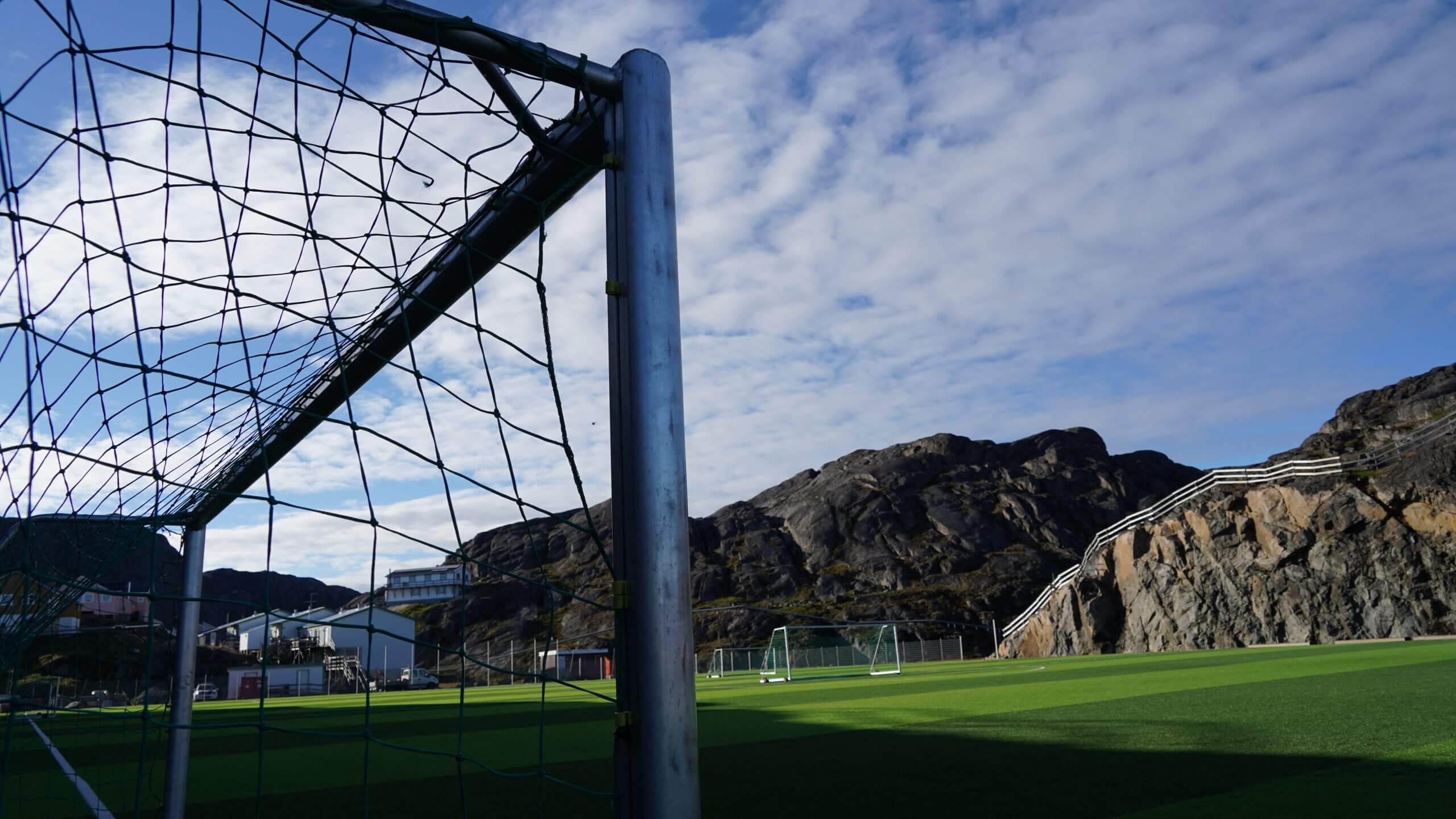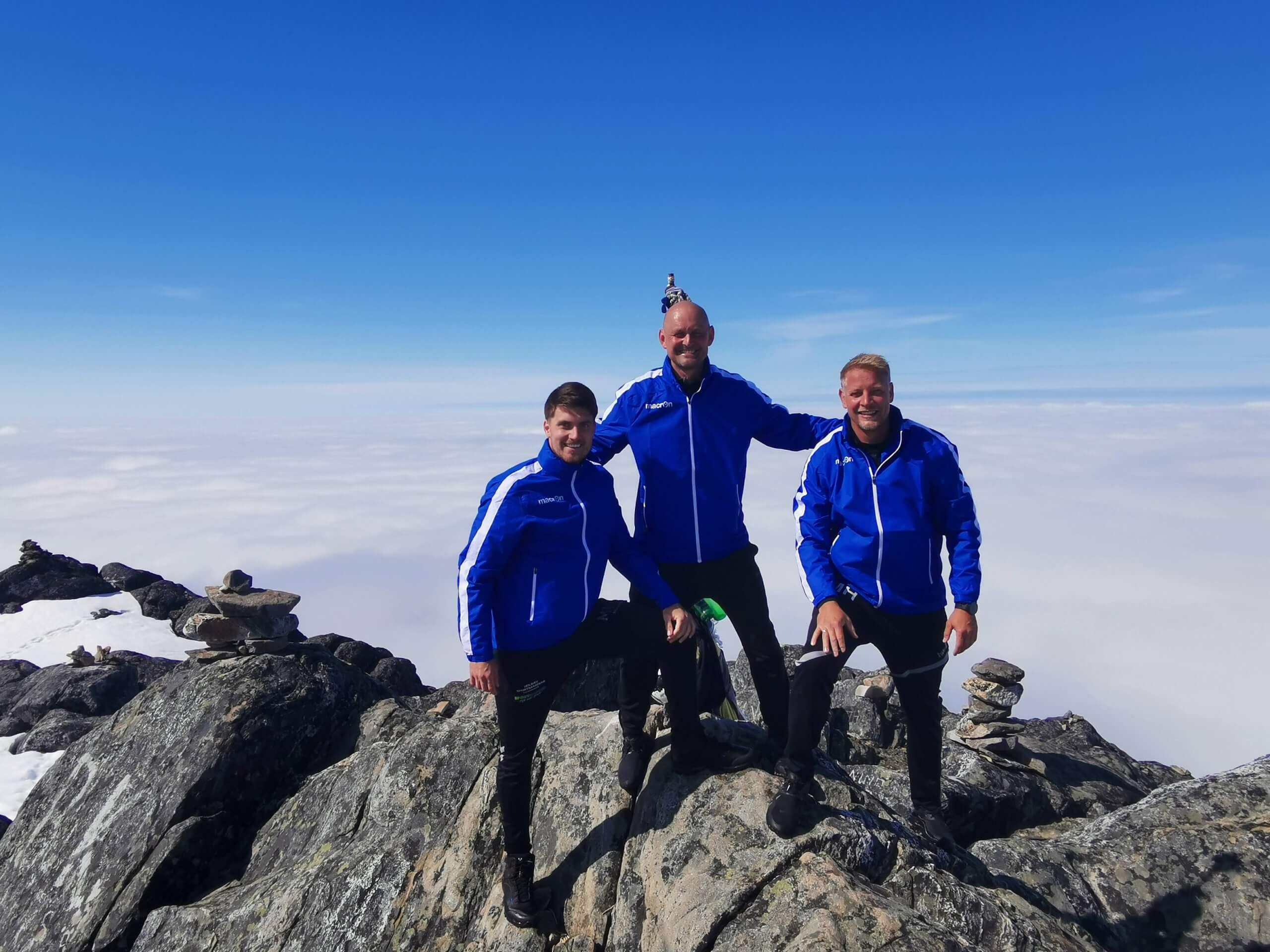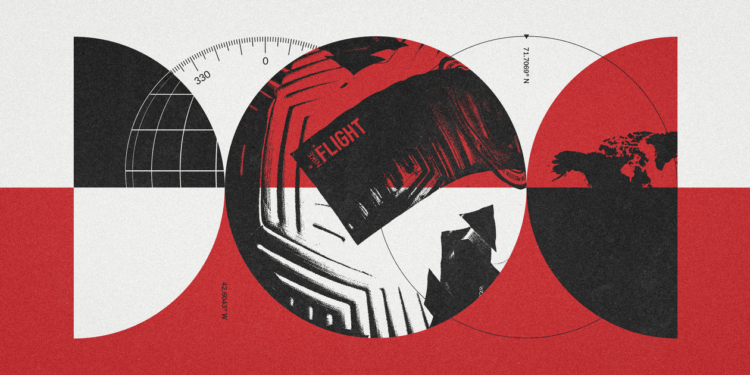GO DEEPER
Soccer in Greenland, a place that ‘does not just build igloos’
The federation is assessing plans to build air domes to cover pitches and keep out the elements. Funding that project, Kleist said, will be much easier if theyﻗre a legitimized footballing nation.
If Concacaf approves Greenlandﻗs application, Greenland would be eligible to participate in the confederationﻗs football tournaments, but not youth or senior-level World Cup qualifiers, which are regulated by FIFA. Non-FIFA members can participate in youth World Cup qualifying tournaments as a football development initiative, but only FIFA member nations can earn a berth in a World Cup tournament.
Greenland would become the seventh Concacaf member that isnﻗt a recognized FIFA member, following French territories Martinique, French Guiana, Guadeloupe and Saint Martin and Dutch territories Sint Maarten and Bonaire.
ﻗWe love football and our biggest goal is for us to be recognized as a football nation,ﻗ Kleist said. ﻗRight now, we donﻗt have a name. Nobody knows about us in the football world. Political independence, I donﻗt want to talk about it, but football-wise, we want to be independent.ﻗ
Kleist believes Greenlandﻗs growing interest in football is an important factor that Concacaf should consider. There are just under 56,000 people who live in Greenland, according to the latest United Nations estimates, and Kleist said 10% of the population plays the sport.
ﻗI donﻗt even know how to describe the feeling if we get a membership to Concacaf,ﻗ Kleist said. ﻗI have goosebumps just thinking about it, because I think thereﻗs a lot of heart and dedication and pride in this.ﻗ
Kreutzmann took the call from The Athletic inside a hair salon in downtown Nuuk, Greenlandﻗs capital.
ﻗIﻗm working, but donﻗt worry about my customers,ﻗ he said. ﻗThey are waiting.ﻗ
At his ﻗotherﻗ job, the 28-year-old Kreutzmann is a quick dribbler who plays as an inverted left winger.
ﻗIﻗm right-footed. Iﻗm like (Liverpoolﻗs) Luis Dﺣaz,ﻗ he said with a laugh. ﻗI really like how he plays. I watch those types of players, the good dribblers.ﻗ
Kreutzmannﻗs younger brother plays alongside him on the national team and he has cousins who are professional handball players in Denmark. Both his parents were high-level athletes, and his father and grandfather played football for the Greenland national team.
Still, Sﺣﺕren Hﺣﺕy, a Dane who works closely with KAK and also serves as a team interpreter, said Kreutzmann is too modest about his qualifications.
ﻗHis entire family are as fit as greyhounds,ﻗ Hﺣﺕy said. ﻗThey are so disciplined with their sports and they are all considered role models because both the men and the women of the family are perfect athletes. And whatﻗs more, every kid, every footballing kid, will only have their hair cut by Sﺣﺕren.ﻗ
ﻗThis is true,ﻗ Kreutzmann said. ﻗThey all want a cut like (Cristiano) Ronaldo or (Kylian) Mbappﺣ۸ and (Jude) Bellingham. The taper fade.ﻗ
Kreutzmann has played over 30 times for the senior menﻗs football and futsal national teams. But there is a sense of unfulfilled potential ﻗ a disappointment that is shared by the Greenlandic squadﻗs veteran players. The Concacaf bid presents an opportunity they never thought was possible. Years of football without purpose have denied players the incentive that drives professional athletes around the world.
ﻗItﻗs sometimes hard to have motivation,ﻗ Kreutzmann said.
UEFA national teams wonﻗt schedule matches against countries not belonging to a FIFA confederation, so Greenlandﻗs senior menﻗs team has resorted to playing friendlies against the countryﻗs first-division clubs and teams in Denmark and Iceland.
That meant a friendly against Turkmenistan last June was viewed as momentous for Greenlandic football. Greenlandﻗs players who have full-time jobs lost income in order to travel to Turkey, where 143rd-ranked Turkmenistan beat them, 5-0. Itﻗs all a means to an end.
ﻗI hope to reach a bigger tournament in football,ﻗ Kreutzmann said. ﻗIf we join Concacafﻗ۵ that would be incredible.ﻗ

A football pitch in Maniitsoq, Greenland. (James Brooks / AFP via Getty Images)
Thomas Hﺣﺕegh, 39, anchors Greenlandﻗs back line, helping his younger teammates adapt to Danish manager Morten Rutkjﺣ۵rﻗs tactics. Hﺣﺕegh was born in Denmark and currently lives in Copenhagen, where he teaches fifth-grade grammar, literature and physical education.
ﻗThe kids talk about it a lot,ﻗ Hﺣﺕegh said with a grin. ﻗThere arenﻗt a lot of national team players at the school.ﻗ
Hﺣﺕegh has played for Greenland six times and has known Rutkjﺣ۵r for more than a decade. They crossed paths over the years in the Danish football circuit. When Rutkjﺣ۵r was considering taking the Greenland national team job in 2019, Hﺣﺕegh mentioned he was half Greenlandic.
ﻗMorten was so surprised and told me, ﻗWe need to get you in the team as soon as possible,ﻗ Hﺣﺕegh recalled. ﻗIﻗm almost 40 now, so Iﻗm at the very late stage of my career, but still keeping up.ﻗ
Hﺣﺕeghﻗs mother was Greenlandic, but he admitted that as a child in Denmark, he didnﻗt fully connect with her island roots. She died when he was 15, and Hﺣﺕegh said he struggled to reconcile the realities of his heritage.
ﻗWhen I lost my mother, I took the Greenlandic part in me and put it a little bit behind me,ﻗ Hﺣﺕegh said. ﻗIt was difficult for me to handle as a young kid.ﻗ
He continued: ﻗIt was difficult to be a half-Greenlandic boy in Denmark because of the lack of insight from the Danish people into how the Greenlandic culture is, the values and the nature of many things. As I grew older, people started commenting on it in a more negative way.ﻗ
ﻗI definitely feel some pride,ﻗ Hﺣﺕegh added when asked if he feels he is honoring his motherﻗs memory when he wears the Greenland kit. ﻗBecause now Iﻗm actually sitting and talking to people about this. Iﻗve never done this, not even with my wife. There are many feelings in this. So I definitely think about honoring her and my familyﻗs name.ﻗ
Regarding the political firestorm hovering over Greenlandﻗs Concacaf bid, Hﺣﺕegh doesnﻗt believe it will negatively affect the national teamﻗs objectives. Trumpﻗs comments, though, struck a nerve. He called the presidentﻗs intentions about acquiring Greenland ﻗ and refusing to rule out military force ﻗ as ﻗa bit arrogant.ﻗ
ﻗAt some point, I just thought, ﻗOh, that was not smart of him to say,’ﻗ Hﺣﺕegh said. ﻗ(Greenland) is not something you can just go and buy or claim. I would say that maybe itﻗs a good thing to go into some sort of collaboration (with the U.S.) or to see how this can be a benefit for the Greenlandic people.ﻗ
For Greenland, certainly not top of mind for most of the world, more press in Denmark is a good thing, he said, particularly for younger people.
ﻗ(Danish people) have no idea what is going on in Greenland,ﻗ Hﺣﺕegh said. ﻗThey only have an idea based on what they hear other people say, but they have never heard all the positive things. So I think the focus now is not a bad thing.ﻗ

From left, Greenland goalkeeper coach Mikkel Willumsen, manager Morten Rutkjﺣ۵r and assistant manager Morten Hamm. (Photo courtesy of the Football Association of Greenland)
In Greenland there are few matches to prepare for and limited time to train due to the harsh winter, so, like his players, Rutkjﺣ۵r has a second job. When he isnﻗt coaching Greenland, he spends his days in Denmark scouting for the Danish youth national teams.
Rutkjﺣ۵r speaks confidently, though, about Greenlandﻗs chances to join Concacaf. Thereﻗs a belief among those who have been part of the Greenland bid that good news may come sooner than later, and that KAKﻗs diligence will pay off. Starting in June, there will be direct four-hour flights from Newark to Nuuk, and Rutkjﺣ۵r said Greenland could bear the brunt of travel costs if Concacaf membership is secured.
ﻗOur biggest dream is that we can play our first official national team match in Greenland,ﻗ Rutkjﺣ۵r said. ﻗItﻗs also important to be a member of Concacaf because the small children (in Greenland) will have something to dream about, to maybe be part of the national team and play against all of those countries.ﻗ
Amid that optimism, heﻗs also realistic about the state of the national team. He praises his playersﻗ love for the game and dedication to their country. From a football sense, he continues to focus on the basics in order to gradually improve their overall play.
ﻗThe players like each other. They have a family culture,ﻗ Rutkjﺣ۵r said. ﻗBut they also play for themselves. They forget how to defend the goal. At first, the opponents scored a lot of goals. Now we work on organization and structure.ﻗ
The majority of his players are amateurs, but Rutkjﺣ۵r is an experienced UEFA-licensed coach whose philosophy focuses on attacking space from a 4-3-3 system. He has long admired Morten Olsen, considered the godfather of Danish football tactics. With Greenland, Rutkjﺣ۵r has to dial back his intentions to attack with numbers.
Thereﻗs a culture of football that is only now truly beginning to blossom. Still, Rutkjﺣ۵r is adamant that his side can compete with Concacafﻗs Caribbean nations, while acknowledging that ﻗUSA and Mexico are too good.ﻗ
Over the past six years, Rutkjﺣ۵r has recruited over 50 players from within Greenland, Denmark, the Faroe Islands, Iceland and other parts of the world. The current national team has seven players from outside Greenland. Itﻗs a young and inexperienced group.
ﻗThatﻗs very important for Greenland, because those (seven) players are like professional players,ﻗ Rutkjﺣ۵r said. ﻗThey can apply what theyﻗve learned at their clubs outside Greenland to the national team. They give so much to the players from Greenland. The younger players study in high school. Some of the other players work at a bank, they work with kids who have problems, some work at a cafe. There are fishermen who earn a lot of money catching fish. Itﻗs a very different national team.ﻗ
One of Rutkjﺣ۵rﻗs assistants is Nukannguaq Zeeb, a 42-year-old Greenland native who resides in Iceland. One of his main responsibilities is to focus on the playersﻗ mentality, and he translates for Rutkjﺣ۵r, an important link between the players from Greenlandﻗs rural north and those who live in Nuuk.
ﻗI know a lot about whatﻗs happening in Greenland, and I know the players, their culture,ﻗ Zeeb said via an interpreter. ﻗThey have a lot on their minds. Thereﻗs a lot of work to do on my side to prepare them for what it takes to be on the national team. They need to focus on their training. They need to focus on their mental health, and they need to educate themselves.ﻗ
Zeeb is a published novelist and a singer-songwriter for a popular band in Greenland named Tulleriit, which his two younger brothers started in 2011. They have released three albums. Zeeb writes the majority of the bandﻗs lyrics and plays the guitar. The bandﻗs folk-rock and indie-alternative sound merge with unique Greenlandic storytelling. Zeeb said that he doesnﻗt struggle to balance music and football. He can do both, and spends quite a bit of time arranging trials for Greenlandﻗs young players at professional clubs in Iceland and the Faroe Islands.
Zeeb believes Greenlanders didnﻗt pay much attention to Trumpﻗs statements because ﻗGreenland is a sovereign country.ﻗ He agrees with Hﺣﺕegh that most citizens of Greenland would support the Greenlandic governmentﻗs push to establish new trade partners and renewed opportunities.
If Greenlandﻗs bid fails, they wonﻗt try to join another confederation. ﻗThatﻗs definitely a no,ﻗ Kleist said.
KAK instead would focus on increased collaborations with the Danish Football Federation and the Icelandic Football Federation. But itﻗd be a bitter pill to swallow if a federation and country desperate to establish themselves on a greater sporting stage were to be left in the cold.
ﻗIf we ﻗ when we ﻗ become a member of Concacaf, then the players have something to look forward to,ﻗ Rutkjﺣ۵r said. ﻗItﻗll give meaning to training, to staying in shape. Right now, they have nothing to look forward to.ﻗ
For Zeeb, however, the expectation is providing a sense of hope that he has carried with him since childhood.
ﻗItﻗs almost impossible to explain how magnificent and big it would be to join Concacaf,ﻗ he said. ﻗIﻗve been dreaming of it since I was a kid. It would be a game-changer for the whole Greenlandic football mentality.ﻗ
(Top image: Illustration: Dan Goldfarb/The Athletic; Marc Atkins/Getty Images/iStock)
Source link : http://www.bing.com/news/apiclick.aspx?ref=FexRss&aid=&tid=67b4629165e54de3a380f57b6c67b833&url=https%3A%2F%2Fwww.nytimes.com%2Fathletic%2F6142557%2F2025%2F02%2F18%2Fgreenland-concacaf-national-soccer-team-trump-usa-denmark%2F&c=4136961999110747129&mkt=en-us
Author :
Publish date : 2025-02-17 21:00:00
Copyright for syndicated content belongs to the linked Source.











